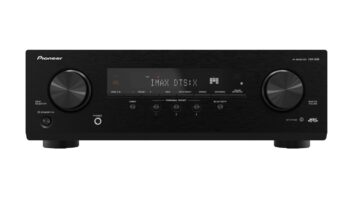Julian Hirsch, an engineer and magazine writer who was instrumental in transforming hi-fi from an esoteric hobby into a multibillion-dollar global industry, died Nov. 24 at the age of 81, after a long illness.
Through more than 40 years of testing and reporting on the performance of audio equipment for consumer magazines, and especially for Stereo Review, Hirsch helped demystify high-fidelity sound reproduction. He became hooked on the then brand-new hobby of hi-fi in 1949, building his own mono gear. As the commercial audio industry expanded in the early 1950s, Hirsch and his engineering friends began testing products to see how they met their performance claims. In 1954, Hirsch and three others joined forces to publish their results in a newsletter, the Audio League Report, whose circulation eventually peaked at 5,000. Publication ceased in 1957 when Hirsch joined with League member Gladden Houck to form the audio testing service Hirsch-Houck Laboratories.
Under the auspices of the Institute of High Fidelity, which was later absorbed into the Electronic Industries Association (now the Electronic Industries Alliance), he helped draft standards for the testing of power amplifiers and FM tuners that made specifications for these components easier to compare and more useful to shoppers.
In 1960, Ziff-Davis Publishing contracted for Hirsch’s exclusive services, buying out his partner while keeping the name Hirsch-Houck Labs. Initially, Hirsch tested gear for Popular Electronics, and in October 1961 his first test report appeared in Stereo Review (then called Hi-Fi/Stereo Review). That year, he also began writing “Technical Talk,” his long-running monthly column in Stereo Review. He wrote test reports, monthly columns, and feature articles for Stereo Review until 1998, when he retired and was given the title editor-at-large at Sound & Vision. He estimated that in the course of his career he contributed 4,000 laboratory test reports to various publications, including 2,400 for Stereo Review.
At the time of Hirsch’s retirement, Hachette Filipacchi Media U.S. — publisher of Stereo Review and now Sound & Vision — established the Julian Hirsch Scholarship Fund at his alma mater, the School of Engineering of the Cooper Union. Those wishing to donate in his memory can make checks payable to The Cooper Union, with “Julian Hirsch Fund” in the memo, and send them to the Cooper Union, Development & Alumni Relations, Attn: Michael Governor, 30 Cooper Square, 8th floor, New York, NY 10003.
Hirsch is survived by his wife of 57 years, Ruth, of New Rochelle, NY; his son, Steven, and his wife, Donna, of Burlington, VT; his daughter, Barbara Harrison, and her husband, Daniel, and their daughters, Emily and Deborah, all of Chappaqua, N.Y.













